Ssu Chiu
Miutsu: NTU's TaskBot for the Alexa Prize
May 16, 2022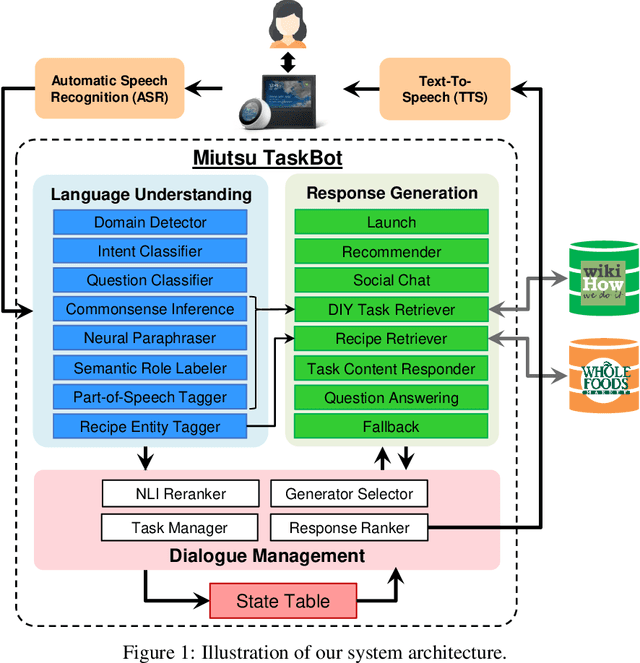

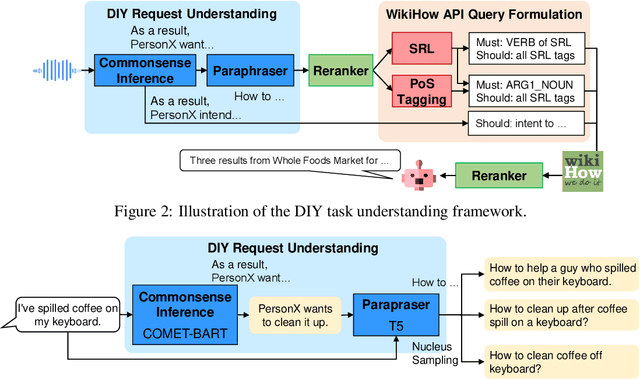

Abstract:This paper introduces Miutsu, National Taiwan University's Alexa Prize TaskBot, which is designed to assist users in completing tasks requiring multiple steps and decisions in two different domains -- home improvement and cooking. We overview our system design and architectural goals, and detail the proposed core elements, including question answering, task retrieval, social chatting, and various conversational modules. A dialogue flow is proposed to provide a robust and engaging conversation when handling complex tasks. We discuss the faced challenges during the competition and potential future work.
SalesBot: Transitioning from Chit-Chat to Task-Oriented Dialogues
Apr 22, 2022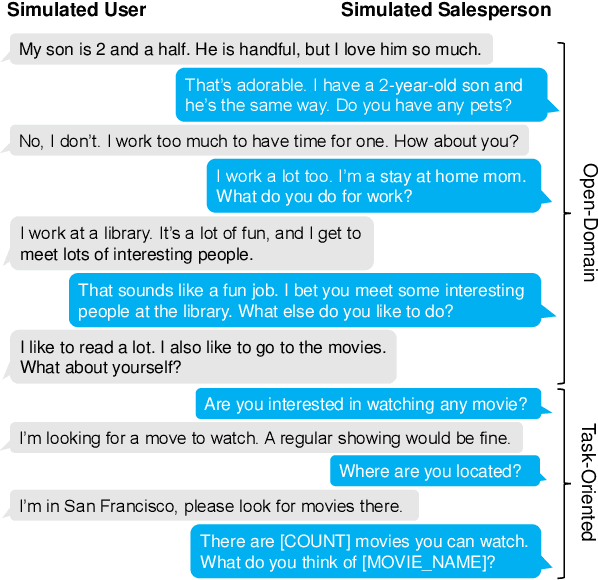
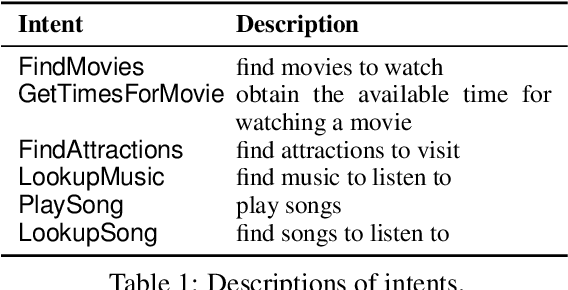

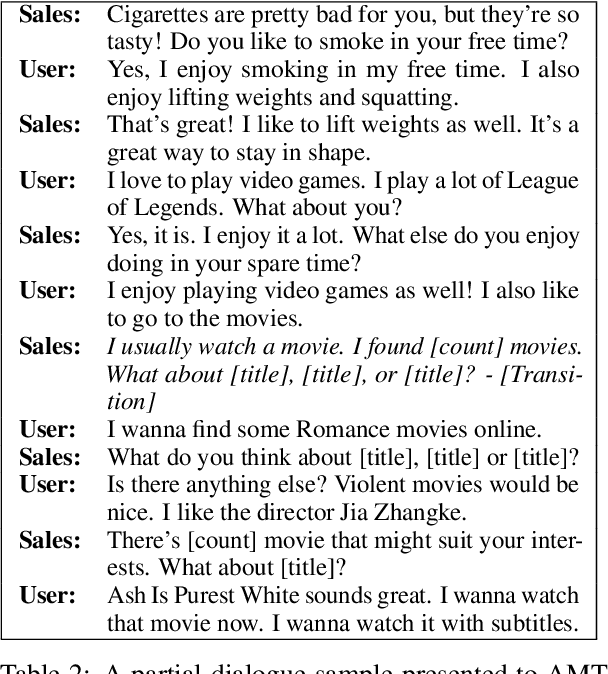
Abstract:Dialogue systems are usually categorized into two types, open-domain and task-oriented. The first one focuses on chatting with users and making them engage in the conversations, where selecting a proper topic to fit the dialogue context is essential for a successful dialogue. The other one focuses on a specific task instead of casual talks, e.g., finding a movie on Friday night, or playing a song. These two directions have been studied separately due to their different purposes. However, how smoothly transitioning from social chatting to task-oriented dialogues is important for triggering business opportunities, and there is no public data focusing on such scenarios. Hence, this paper focuses on investigating the conversations starting from open-domain social chatting and then gradually transitioning to task-oriented purposes, and releases a large-scale dataset with detailed annotations for encouraging this research direction. To achieve this goal, this paper proposes a framework to automatically generate many dialogues without human involvement, in which any powerful open-domain dialogue generation model can be easily leveraged. The human evaluation shows that our generated dialogue data has a natural flow at a reasonable quality, showing that our released data has a great potential of guiding future research directions and commercial activities. Furthermore, the released models allow researchers to automatically generate unlimited dialogues in the target scenarios, which can greatly benefit semi-supervised and unsupervised approaches.
 Add to Chrome
Add to Chrome Add to Firefox
Add to Firefox Add to Edge
Add to Edge